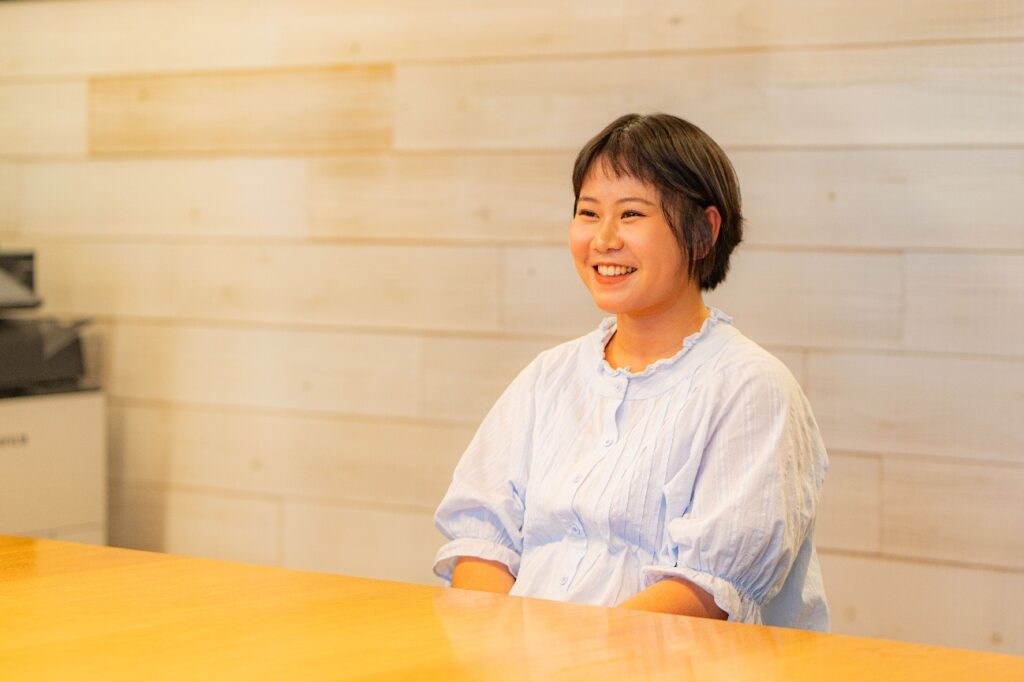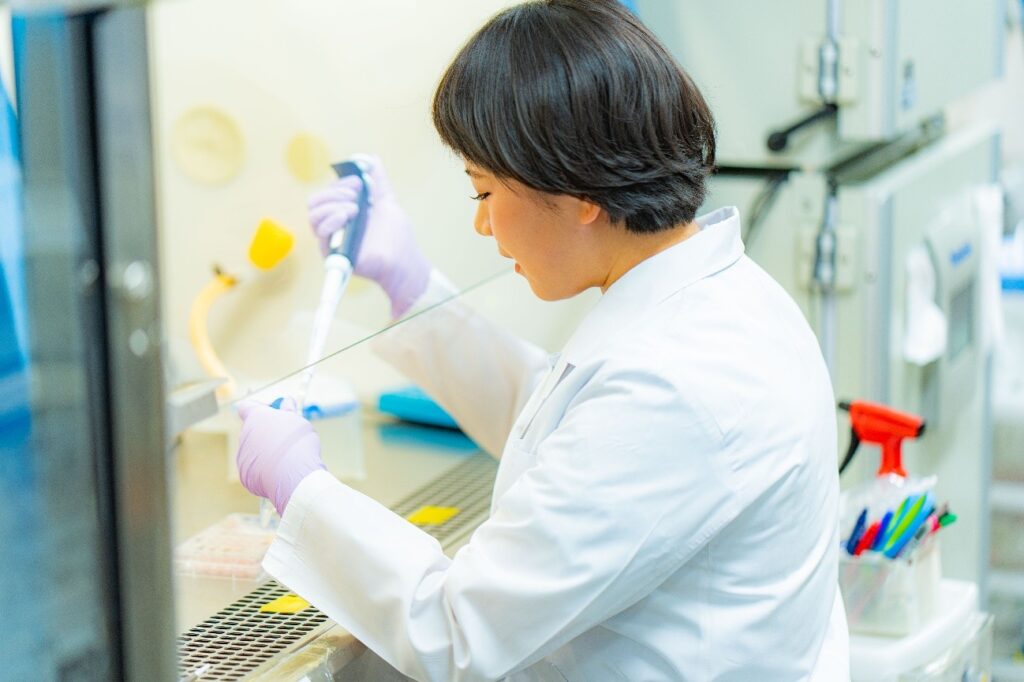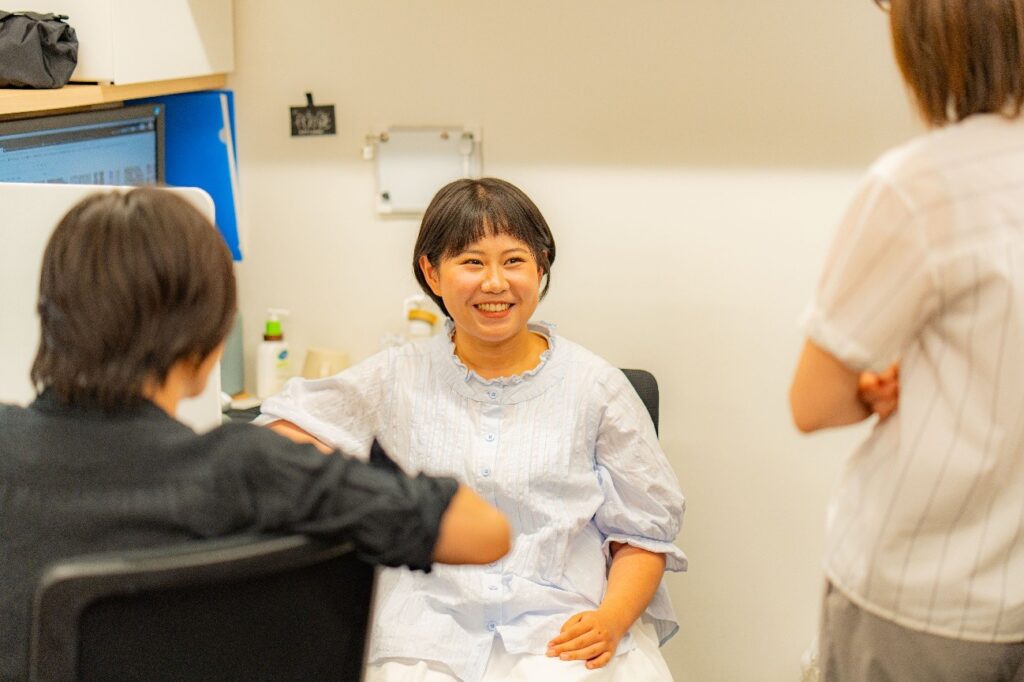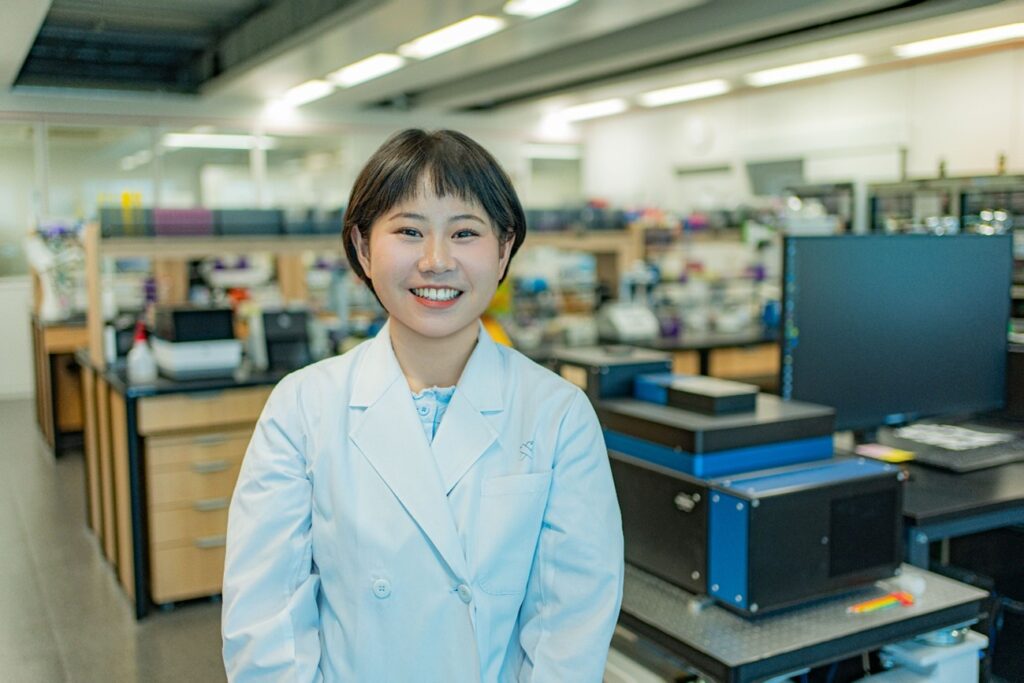Unraveling the Mechanisms of Cancer Development: Exploring the Frontiers of Organoid Research Abroad
PROFILE
PhD Student
Tingting Chen

Q. What is your research focus at Integrated Medicine and Biochemistry?
My research focuses on the functional analysis of gene mutations associated with diffuse-type gastric cancer. In particular, I’m investigating how non-truncating variants affect cellular behavior at the molecular and cellular levels. Using organoid models and CRISPR-Cas9 genome editing, I aim to elucidate the mechanisms behind early tumorigenic changes and abnormal cell differentiation.
Q. What motivated you to join this lab in Japan?
Could you share the attractions and challenges you have experienced working in a different research environment?
I chose this lab because of my strong interest in organoid technology, and this group has outstanding achievements and a well-established system in that field.
Before joining, I had some brief exposure to clinical research, but my current work is more focused on basic research that aims to uncover the underlying mechanisms of disease, which gives me a fresh and intellectually stimulating perspective. In this lab, I feel a much stronger sense of ownership over my project. I am expected to take responsibility for many aspects of the research—from planning to execution and analysis—which is both challenging and rewarding.
One of the more challenging aspects of my research work has been dealing with unfamiliar experimental systems, instruments, or kits. Sometimes I need to use a kit that most people in the lab have never tried before, and in those cases, there’s no established protocol or precedent to rely on. I often encounter unexpected issues—problems I didn’t even realize could be problems until they happen. These challenges are even more pronounced because my experimental model is organoids, which are more sensitive, heterogeneous, and technically demanding than standard 2D cultured cells. Optimizing conditions such as timing, cell amount, and harvesting methods often requires repeated trial and error, and even small inconsistencies can greatly affect the outcome.
For instance, even a seemingly simple task like ordering reagents can become complex if you’re not sure which product version works best for your assay, or if small differences in storage or handling affect the outcome. Troubleshooting under such conditions is time-consuming and sometimes frustrating, but it has also taught me to think critically, document carefully, and remain resilient when things don’t go as planned.
To overcome these technical and practical challenges, support and communication with colleagues become essential. I often exchange ideas, share observations, and discuss troubleshooting strategies with other members of the lab. This collaborative environment not only helps solve problems more efficiently but also allows me to learn from diverse perspectives.

Q. Could you tell us about a moment in your research when you felt a great sense of achievement, as well as a time you faced significant difficulties? How did you overcome those challenges?
To be honest, I haven’t yet had a strong sense of achievement in my research. More often, I find myself facing challenges and realizing how much I still need to learn. I’ve come to understand that clearly expressing my difficulties and asking the right people for help is one of the most effective ways to move forward. While it’s important to solve problems independently, knowing when to seek support is also a valuable skill in research.
Q. While conducting research overseas, what efforts or strategies have you used to adapt to language barriers, daily life, and communication within your research team?
Language barriers have always been a challenge, but I try my best not to let them interfere with my research or daily life. When I don’t fully understand a discussion, I ask for related materials afterwards and take time to study them on my own. I then follow up with questions to ensure I truly understand the topic.
If I struggle to express myself clearly in a foreign language, I usually draft an email outlining my questions and needs, often using AI tools to help make my message clearer and more accurate. This strategy has been especially helpful in communicating efficiently with multiple people.
Fortunately, my lab has many international members, so English is often sufficient for communication. I’m also actively learning Japanese to better integrate into both the lab and daily life. Above all, I really appreciate how kind and supportive my labmates are—it makes a big difference in adapting to a new environment.

Q. What are your goals or dreams for your future career and research? Do you have any advice for young people who are considering pursuing research abroad?
My goal moving forward is to solidify my expertise and skills through my work in this lab and successfully complete my doctoral program. I hope to apply the experience I gain here toward a future career in the pharmaceutical industry, contributing to drug development and ultimately society. The research topic I’m working on is quite intricate and demanding, requiring a lot of careful thought and effort. However, I see these challenges as valuable opportunities for personal and professional growth. While difficulties arise, I aim to progress steadily at my own pace, making the most of the support available around me. To young people considering research abroad, I would emphasize the importance of taking things one step at a time without rushing. Although adapting to a new environment and facing challenges can be tough, I encourage them to embrace these experiences fully and use them as stepping stones for growth.


